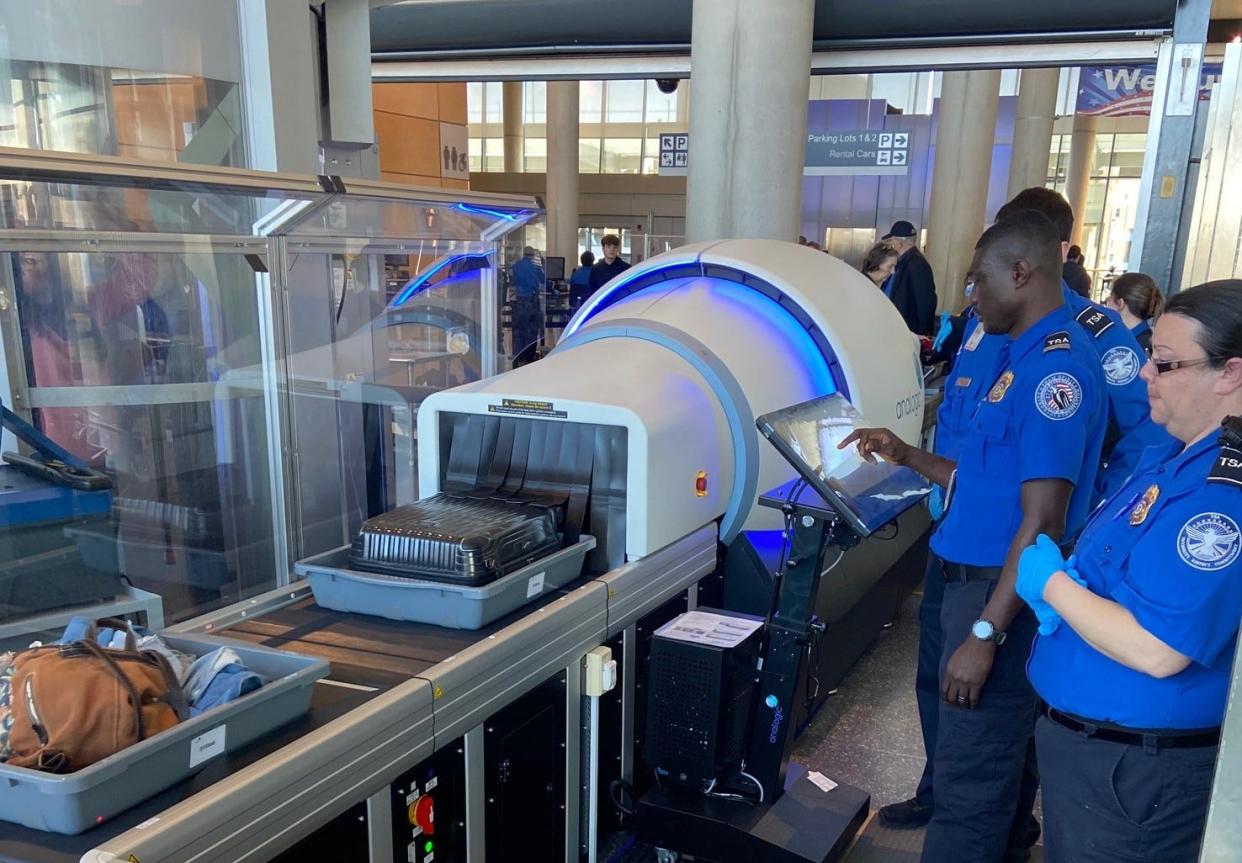Get there early: New Asheville airport scanners will cause temporary longer security lines

ASHEVILLE - The Transportation Security Administration is installing new scanners at the Asheville Regional Airport over the next few weeks – work that the TSA says will slow down security checks briefly but pay off for flyers in the long run.
Three new computed tomography X-ray scanners are being installed at the AVL security checkpoint, according to a March 20 news release from the TSA. The installation will be phased, and the release says that only two security screening lanes “will be in operation” at a time during the project. The airport recommends that flyers show up to the terminal two hours ahead of their flight time.
“During the installation process, it tends to slow things down because … we have to take security screening lanes out of commission,” Dan Velez, a TSA spokesperson, told the Citizen Times. “We try to do the installs overnight so it’s not a disruption to the airport.”
More:Asheville Regional Airport sees 'all-time high' number of firearms at security checkpoints
More:Answer Man: Asheville Regional Airport is dirty? Can it keep up with passenger increase?
The new scanners are arriving after the airport saw its busiest year on record. In 2022, more than 1.8 million passengers passed through the airport, a 29% increase over 2021 and the highest number of passengers seen in a single year, according to the airport, the Citizen Times previously reported.
On March 10, the airport announced that it would charge anyone "found with a firearm at the checkpoint," amid "an all-time high for number of firearms at the checkpoint" in 2022, according to the airport.
Transportation security officers will have to go through training for the new scanning technology, too, Velez said.
It will take about three weeks in total to install the scanners, a week each, airport spokesperson Tina Kinsey told the Citizen Times in an email.
In the long run, when the scanners are installed, security checks at the airport will be faster and more convenient, Velez said.
“These new CT scanners allow our transportation security officers to rotate a 3D image to get a better look at the contents of everyone’s carry-on bag,” he said. “So, what that means is – since they can manipulate the image and see a lot more compared to the 2D images they were looking at – there’s less hands-on searching that’s required.”
He added that, with the new scanners, flyers will no longer have to empty electronics from their carry-on bags, nor from their “3-1-1” liquid bags.
“When a carry-on bag is screened through a CT scanner, travelers can leave everything in their carry-on bag, including electronics larger than a cell phone and food,” according to the release.
“The opening to the X-ray tunnel on a CT unit is slightly smaller than on a traditional X-ray unit so TSA advises travelers not to force larger items into the tunnel, but to ask a TSA officer for assistance. Another feature of the CT scanner system is every carry-on item must be placed in a bin for screening.”
The new scanners are being funded by the TSA, Kinsey said.
The TSA has installed 291 of 313 scanners at airports around the country, Velez said.
Ryan Oehrli covers public safety, breaking news, courts and other beats for the Citizen-Times. Comments? Questions? Tips? Send them to coehrli@citizentimes.com or 252-944-6816. Please support this type of journalism with a subscription to the Citizen-Times.
This article originally appeared on Asheville Citizen Times: How will new AVL Airport scanners affect security screenings?

